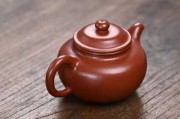本文目录导读:
- The Importance of House Orientation
- The Role of House Direction in Feng Shui
- The Impact of House Layout on Feng Shui
- The Significance of House Color in Feng Shui
- The Role of House Structure in Feng Shui
- The Impact of House Location on Feng Shui
- The Role of House Feng Shui in Daily Life
- Conclusion

When choosing a property to rent, have you ever wondered what kind of house is best? In today's competitive real estate market, many people are turning to the art of house Feng Shui to guide their choices. Feng Shui, the ancient Chinese practice of arranging space and energy, plays a significant role in determining the harmony and compatibility of a property. Whether you're looking for a cozy apartment or a spacious home, understanding the principles of house Feng Shui can help you make a more informed decision. Let's delve into the secrets of house Feng Shui and find out what kind of house is best for your living space.
The Importance of House Orientation
The orientation of a house is one of the most crucial factors in Feng Shui. The orientation refers to the direction in which the house faces, such as north, south, east, or west. In Chinese culture, the south is considered the most auspicious direction, as it is associated with the Earth element and represents stability and prosperity. Therefore, a property that faces the south is often seen as a good investment and a harmonious living space.
However, it's not just about facing the south. The combination of the house's orientation and its location also plays a significant role. For example, a house that faces the south but is located in a mountainous area may have different Feng Shui implications compared to one that faces the south in a flat, open area. Therefore, it's essential to consider both the direction and the surrounding environment when evaluating a property.
The Role of House Direction in Feng Shui
In Feng Shui, the direction of a house is closely related to the flow of energy, or "Chi," which is believed to flow through the land and buildings. The energy of a property is said to be influenced by the direction it faces, as well as the direction of the wind and other natural elements. For instance, a house that faces the south is considered to have a strong connection to the Earth element, which is associated with stability and grounding. This is why properties in southern China are often more stable and prosperous compared to those in other regions.
On the other hand, a house that faces the north is said to be influenced by the polar energy, which is associated with cold and rigidity. Properties in northern China are often seen as cold and difficult, which may not be ideal for families or those who prefer a more stable living environment. Therefore, when choosing a property, it's important to consider the direction it faces and whether it aligns with your lifestyle and energy needs.
The Impact of House Layout on Feng Shui
In addition to the orientation, the layout of a property is another critical factor in Feng Shui. The layout refers to the arrangement of rooms and spaces within a property, as well as the placement of furniture and objects. A well-planned layout is said to enhance the flow of energy and create a harmonious living environment. For example, a property with a balanced layout, where each room and space is proportionate to its purpose, is often considered to be a good investment.
Moreover, the placement of furniture and objects within a property is also important. In Feng Shui, certain objects are believed to bring good luck and prosperity, while others may have the opposite effect. For instance, red is considered a lucky color in Chinese culture and is often used to decorate bedrooms and living areas. On the other hand, black is associated with darkness and negativity, and is generally avoided in Feng Shui arrangements.
The Significance of House Color in Feng Shui
Color plays a significant role in Feng Shui, as it is believed to influence the energy and mood of a property. In Chinese culture, certain colors are considered to bring good luck and prosperity, while others are associated with challenges and difficulties. For example, red is considered a lucky color and is often used to decorate homes and offices. It is believed to bring good fortune and attract positive energy. On the other hand, black is associated with darkness and negativity, and is generally avoided in Feng Shui arrangements.
In addition to the color of the walls and furniture, the color of the overall environment also plays a role in Feng Shui. For instance, a property with a greenery-filled garden is often considered to be a good investment, as greenery is associated with growth, health, and prosperity. Similarly, a property with a garden that has a mix of colors, such as red and yellow flowers, is said to bring good luck and happiness.
The Role of House Structure in Feng Shui
The structure of a property is also an important consideration in Feng Shui. In Chinese culture, the structure of a building is said to reflect the energy and harmony of the land and its people. For example, a well-constructed building with high-quality materials is often considered to be a sign of good fortune and prosperity. On the other hand, a poorly constructed building with low-quality materials may be associated with misfortune and difficulties.
Moreover, the structure of a property is said to influence the flow of energy within the building. For instance, a property with a strong foundation is often considered to be stable and harmonious, while a property with a weak foundation may be associated with instability and problems. Therefore, when choosing a property, it's important to consider the quality of its structure and whether it aligns with your lifestyle and energy needs.
The Impact of House Location on Feng Shui
In addition to the orientation, layout, and structure, the location of a property is also a crucial factor in Feng Shui. The location of a property is said to influence the energy and atmosphere of the surrounding area, which in turn affects the energy and well-being of the residents. For example, a property located in a quiet and peaceful area is often considered to be a good investment, as it is said to attract positive energy and bring harmony to the family.
On the other hand, a property located in a busy and noisy area may be associated with challenges and difficulties, as the energy of the surrounding area may negatively affect the residents. Therefore, when choosing a property, it's important to consider the location and whether it aligns with your lifestyle and energy needs.
The Role of House Feng Shui in Daily Life
In addition to the physical aspects of a property, Feng Shui also plays a role in the daily life of the residents. For example, Feng Shui is said to influence the energy and mood of the home, which can have a positive or negative impact on the residents' well-being. Therefore, when choosing a property, it's important to consider how the Feng Shui of the property will affect your daily life.
For instance, if you have a strong negative energy in your home, it may cause stress, anxiety, and other negative emotions. On the other hand, a property with a positive and harmonious Feng Shui is said to bring good luck, happiness, and prosperity to the residents. Therefore, it's important to choose a property that not only meets your physical needs but also aligns with your energy and lifestyle.
Conclusion
In conclusion, Feng Shui is a powerful tool that can help you make a more informed decision when choosing a property to rent. By considering the orientation, layout, structure, and location of a property, as well as the energy and atmosphere of the surrounding area, you can choose a property that is not only physically sound but also harmonious with your lifestyle and energy needs. Additionally, Feng Shui can help you create a living space that brings good luck, happiness, and prosperity to your family.
Therefore, if you're looking for a property to rent, don't forget to consider the principles of Feng Shui. By doing so, you can choose a property that is not only a safe and stable place to live but also a source of harmony and prosperity. So, take the time to research and evaluate the Feng Shui of the properties you're considering, and make a decision that aligns with your lifestyle and energy needs.
八字合婚测算,知乎 secrets you never knew about your love
屋后种疏菜, secrets you may not know
鞋柜颜色选择,吉利 secrets you may not know
观花树,算命的 secrets you may not know
鱼缸,养鱼的 secrets you might not know
方面,我需要吸引人,同时明确主题。比如柴火灶方位吉凶,家庭厨房 secrets you may not know这样的标题,既点明了主题,又增加了吸引力
门帘内放什么,门的 secrets you need to know








